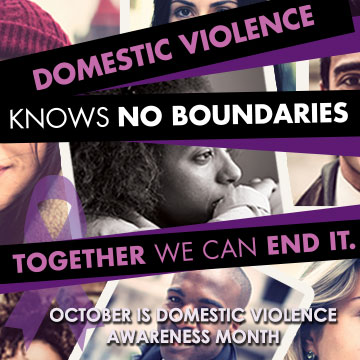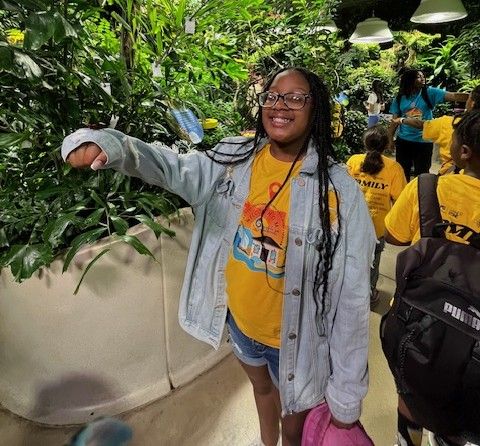Domestic violence is one of the most traumatizing events a child can experience, and each year 3.3 million children witness domestic violence assaults. They are domestic violence’s hidden victims. Unable to turn to their parents for help, these children often struggle in silence, alone with their fear and trauma.
 But if we are alert to the signs of this trauma in children, we can help ensure their safety and help them recover. The Child Center responded to over 1000 domestic violence cases last year in which children’s safety was threatened. When children live in a domestic violence situation, they are at high risk for both emotional and physical harm, including injury from thrown objects or when a child intervenes to protect the abused parent. Adequate safety planning can keep children safe.
But if we are alert to the signs of this trauma in children, we can help ensure their safety and help them recover. The Child Center responded to over 1000 domestic violence cases last year in which children’s safety was threatened. When children live in a domestic violence situation, they are at high risk for both emotional and physical harm, including injury from thrown objects or when a child intervenes to protect the abused parent. Adequate safety planning can keep children safe.
To help identify children who might be suffering from trauma, here are some common behaviors and ways to help.
Newborns and toddlers: Even newborns and toddlers can feel the stress in their environment and have sleep and eating disturbances. Children under five can be fearful or uncertain as they respond to their environment, and they may throw tantrums or mimic the abuser’s behaviors. Nervous habits can also begin around this time, such as thumb sucking or rocking.
How to help: Parents and caregivers can help by helping the child to name his feelings, give all of the empathy and reassurance they can, and keep the children close to their family support system. It’s also important to give children choices so they know that they still have a measure of control over their own lives.
School-aged children: School-aged children exposed to domestic violence may have problems with distractions and lack of focus. Some may become overly responsible–taking on the role of a parent figure–whereas other children may become less so. They can feel distrust, despair, hopelessness—even anger toward the parent who is being abused.
How to help: First, above all, listen. Caregivers should answer questions calmly, simply, and truthfully, and reassure the child that the support system is working to keep the family safe. Giving children good choices is important, and parents should give structure and good boundaries so that kids can be kids.
Teens: As children get older, teen boys and girls may react to their experiences in different ways. Boys may feel powerless and guilty that they were unable to stop the violence. They can often feel shame and embarrassment and the need to control, which may mean adopting abusive patterns of behavior—including using violence to handle problems. When their instinct for protectiveness is triggered and they feel powerless, they may begin acting out towards the abusive parent.
Girls exposed to domestic violence can blame themselves for the abuse, and sometimes they over-identify or under-identify with the abused parent. As they seek comfort and protection, they may run away from home or seek out other male figures, which can leave them vulnerable to abuse. Pushing limits and boundaries in their relationships through sexual acting out or increased neediness can also be part of this. For both teen girls and boys, school problems can be an issue.
How to help: Caregivers can encourage teens to stay close to their family and support system. They can help teens find outlets for their feelings through yoga, sports, hobbies, writing journals, and artwork. Teens need a safe place to talk, like a group at school or a counselor. Be sure to answer questions honestly, and keep reassuring them—they are safe.
Remember, not every child exposed to domestic violence will respond in the same way. Each child and family is different, and each has its own strengths and resiliencies. But as a community, we can help by staying alert to the most common signs of a child in distress, providing support, and reporting suspected abuse or troubling behavior to professionals. Most importantly, be a friend when you can. Having the support of a non-abusive adult can help make kids feel safe, and give them someone they can confide in.
By The Child Center of NY’s Clinical Consultation Program, with special thanks to Heti Baker. If you are experiencing domestic violence, please reach out and find help by calling the National Domestic Violence Hotline at 1−800−799−7233 . You can learn more about our individual and family counseling programs here.





